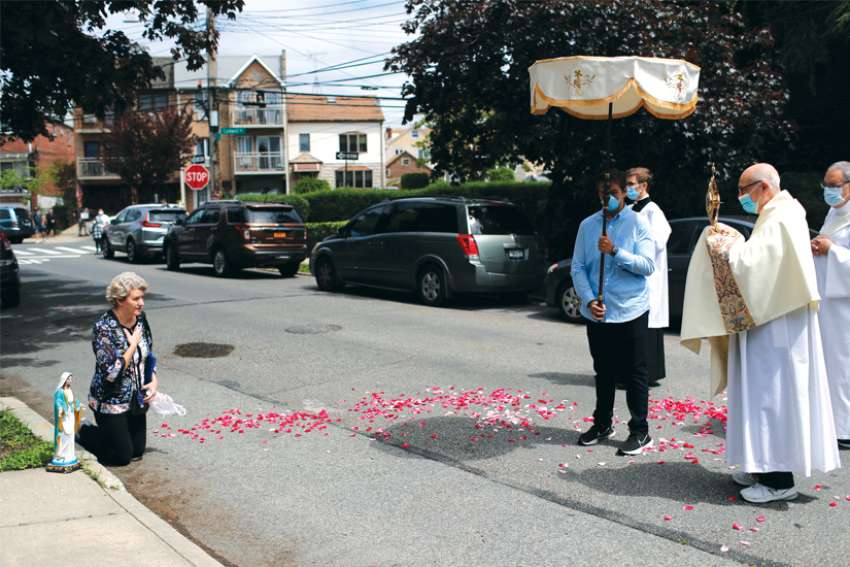“The people are demanding to go to church and their synagogue, to go to their mosque. Many, many millions of Americans embrace worship as an essential part of life,” he said May 22.
“The ministers, pastors, imams and other faith leaders will make sure their congregations are safe as they gather and pray. They love their congregations, they love their people,” Trump said.
“If they don’t do it, I will override the governors. America, we need more prayer, not less,” he said, even though many of Trump’s critics said the U.S. president could not constitutionally override governors on this matter in their own states.
It is within Trump’s power, however, to direct the Justice Department to file lawsuits against governors because the right to worship is “absolutely protected by the First Amendment,” senior judicial analyst Andrew Napolitano said on Fox News.
Trump noted that several governors “have deemed liquor stores and abortion clinics as essential but have left out churches and other houses of worship. It’s not right.”
Among those who praised Trump’s declaration that houses of worship are essential was the president and CEO of the Plano, Texas-based First Liberty Institute, a non-profit law firm that handles cases on religious freedom and other First Amendment issues.
“The discrimination that has been occurring against churches and houses of worship has been shocking,” said Kelly Shackelford, who also is chief counsel to the First Liberty Institute. “We applaud the president’s strong stance today demanding that these attacks must stop and that churches and houses of worship be freed to safely open. Americans are going to malls and restaurants. They need to be able to go to their houses of worship.”
When the coronavirus was declared a pandemic, Catholic dioceses across the U.S. closed churches and suspended the public celebration of Mass, following the guidelines issued by government officials and health officials in stay-at-home orders to stop the spread of the virus.
In some parts of the country, as states have begun to open up in stages, dioceses have been issuing their own plans for the gradual reopening of churches over several phases, with the safety of congregants, priests, deacons and other parish staff foremost in the minds of Catholic officials.
They include rules for social distancing, small-number limits on gatherings, requirements for face coverings, hand-sanitizing procedures and best practices for disinfecting pews and other areas of churches.
Across the board these church protocols have many other commonalities, including no holy water in fonts, a prohibition on physical contact during the Our Father or the sign of peace, no presentation of the gifts, reception of Communion in the hand, and for the time being the Precious Blood will not be offered at holy Communion.
Trump’s May 22 announcement comes less than a week after the U.S. Department of Justice challenged the “unequal treatment of faith communities” in California’s coronavirus reopening plan, warning that continued restrictions on worship services threaten believers’ civil rights to practise their religion.
And in Minnesota the state’s Catholic bishops and Lutheran officials are moving ahead with plans to resume liturgies at one-third church capacity May 26, despite Gov. Tim Walz’s executive order capping faith-based gatherings at 10 people due to the pandemic.


